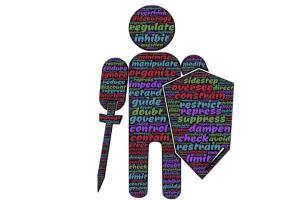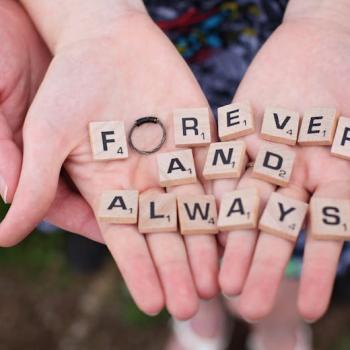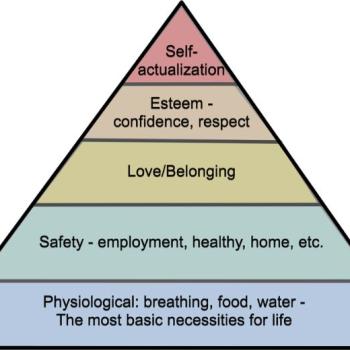
All of us have been hurt by other people at one point or another. It’s a sad fact of life. And most, if not all, of us put up emotional barriers to protect ourselves from being hurt in the same way again. These barriers can manifest in different ways, from emotional walls to communication barriers. While these protective barriers may seem necessary for our survival and well-being, they can actually hinder our personal growth and relationships. In this article, we will explore the psychology behind emotional barriers, the different forms they take, and strategies for breaking them down.
Understanding Emotional Barriers
Emotional barriers are unconscious psychological processes that we use to protect ourselves from emotional pain or trauma. These mechanisms can be adaptive or maladaptive, depending on the situation. Adaptive mechanisms, such as humor or sublimation, can help us cope with stress and anxiety. Maladaptive mechanisms, such as denial or repression, can lead to negative consequences, such as avoidance or addictive behaviors.
The purpose of emotional defense mechanisms is to reduce or avoid emotional suffering. For example, if we experience a traumatic event, we may use denial to avoid the reality of the situation. Over time, this refusal to see the truth about a situation can lead to problems with seeing other things as they really are, in a trickle-down effect. As you can imagine, this denial greatly interferes with interpersonal relationships. And it doesn’t really even help at the intrapersonal level.
As we learn in Celebrate Recovery, the Bible clearly tells us:
“You can’t heal a wound by saying it’s not there.” (Jeremiah 6:14, TLB)
Despite what our denying minds might think, emotional barriers are almost always maladaptive. They are almost always harmful to ourselves and others, although they might not always look the same.
Types of Emotional Barriers
Emotional barriers can manifest in different ways, depending on the situation and the people involved. The three major types of emotional barriers are destructive emotional reactions, relationship problems, and communication barriers.
Destructive Reactions – Emotional reactions are the most common type of protective barrier. They can manifest as emotional walls or shields we put up to protect ourselves from pain. Some examples include fear, anxiety, anger, and sadness. These reactions display our inability to maturely and effectively express our emotions, and they prevent our authentic connections with others.
Relationship Problems – Emotional barriers prevent us from developing and maintaining healthy relationships. Common barrier-related relationship problems include trust issues, fear of intimacy, or difficulty in expressing emotions. Relationship barriers can lead to loneliness and isolation, which can significantly harm our mental, and even sometimes physical, health.
Communication Barriers – Communication barriers are emotional barriers that directly hinder effective communication. These barriers can manifest as language barriers, cultural differences, or a lack of empathy. Communication barriers can prevent us from understanding others and making sure they understand us accurately. This, of course, will lead to misunderstandings and conflicts.
Examples of Emotional Barriers and Their Effects
As mentioned above, emotional barriers can manifest in different ways, depending on the individual and the situation. Some common examples of emotional barriers include fear, anxiety, anger, and sadness. These emotions prevent us from effectively expressing ourselves and authentically connecting with others.
For example, if we have experienced rejection or betrayal in the past, we may develop a fear of vulnerability. This fear can prevent us from opening up to others and forming meaningful connections. Similarly, if we have experienced trauma or abuse, we may develop a sense of shame or guilt that causes us to close ourselves off from other people and bottle up our emotions.
The effects of emotional barriers can be far-reaching. They can prevent us from developing healthy relationships, lead to feelings of loneliness and isolation, and hinder our personal growth and development.
How Emotional Barriers Form
These protective barriers can form as a result of childhood experiences, trauma, or cultural conditioning. In childhood, we learn how to cope with stress and emotional pain inflicted by our caregivers or our environment. If we experience trauma or abuse during childhood, we may develop maladaptive defense mechanisms that carry into adulthood.
Similarly, cultural conditioning can also play a role in the formation of protective barriers. Depending on our culture or upbringing, we may learn to suppress our emotions or avoid vulnerability.
Five Signs Your Emotional Barriers Are No Longer Serving You
When we are focused on protecting ourselves, we often take normal situations and overthink them or assume there is something wrong with either the situations or the relationships experienced within them. If we step back and view these situations objectively, however, we find that our own perceptions and coping mechanisms are causing the most harm.
Certain signs indicate your emotional barriers have taken you farther than you wanted to go, and you need to take some steps to heal and grow. These include the following.
You Swallow all Your Emotions
You decide to push all your emotions down and never bring them up because you want desperately to believe things will be different than they were the last time, perhaps when you did not stuff down all your emotions. While this may seem like a great idea on the surface, stuffing emotions will just make them explode worse than before when they finally come out. And they will. For this reason, this behavioral decision can also lead to significant physical health problems.
You Have Trouble with Intimacy
You may notice you feel uncomfortable when confronted with other people’s feelings, either in person or even on-screen. Maybe talking about your own emotions is especially distressing to you. This is an indicator of an intimacy problem.
You may also find that when someone tries to get to know the real you, you decide to play it off as a joke. You may do this to try and protect yourself, but it ends up hurting the other person. Again, as we say in Celebrate Recovery, “Hurt people hurt people.” This, obviously, is not a good thing, and it’s probably not who you want to be.
You Are Overly Critical
A sad truth that goes along with the “hurt people hurt people” idea is that if you’ve been hurt, you may have some negative thoughts about yourself that could transfer over into negative thoughts about other people. This often comes out in the form of criticism.
Do you constantly look at things, or even other people, and think about how you would do something differently? Do you make condescending comments about people’s appearance or ideas, and then play them off as jokes in an effort to not reveal your true emotions?
You may think you’re slick, but you’re truly not hiding anything. People are usually good at sensing how others feel about them, and your hypercriticism and overall judgmental attitude will send them running for the hills. But maybe you’ve already figured that out.
You Have an Especially Intense Personality
In addition to an overly critical spirit, you may have a personality that others see as being too intense at times. People who have been hurt and are trying to protect themselves often find themselves hiding behind a part they’re playing. They are constantly trying to show off how amazing they are, even when they are stuck down in the dumps. As anyone who has spent any time acting knows, any part can easily be overdone, and most people will be put off, both by the intensity and the fakeness. In order to have good relationships with other people, you have to be willing to show your true self.
You See Commitment as an Ultimatum
Another way you know you’ve gone too far with your emotional protection efforts is if you see commitment to another person as an ultimatum, or a bad thing. If you really think about it rationally, you know that commitment is a good thing. But instead of seeing someone’s desire to take your relationship to the next level as an indicator that they really care about you, you may see it as a sign you need to run away.
You may feel like your partner is trying to ruin a good thing by pushing your relationship forward, rather than just letting things be. Your emotions can get the best of you when you feel like you’re being backed into a corner. Unfortunately, this could lead to an argument that will accomplish nothing but an end to the entire relationship.
When you exhibit one or more of these signs, you need to recognize it is a red flag that you are pushing people away. So, you might want to try a new approach. If you have been hurt in the past, it is natural to put these walls up to provide yourself with some protection. But you can’t stay hidden behind them forever. You need to, at some point, recognize the warning signs and get ready to tear down your emotional barriers so you can experience true love again.
Strategies and Techniques for Breaking Down Emotional Barriers
Breaking down protective barriers can be a challenging and complex process, but it is essential for personal growth and the development of healthy relationships.
Here are some strategies and techniques that can be helpful in breaking down emotional barriers.
Practice Self-Awareness
Self-awareness is the first step in breaking down protective barriers. By becoming aware of our defense mechanisms and emotional patterns, we can begin to understand how they affect our lives and relationships. Only then can we make effective, positive changes.
Cultivate Mindfulness
Mindfulness can help us develop a non-judgmental awareness of our thoughts and emotions. By practicing mindfulness, we can learn to observe our emotions without reacting to them, which can be helpful in breaking down emotional barriers.
Develop Emotional Intelligence
Emotional intelligence is the ability to recognize and understand our own emotions and those of others. By developing emotional intelligence, we can learn to express ourselves effectively and connect with others on a deeper level.
Practice Vulnerability
Vulnerability is the key to breaking down emotional and relationship barriers. By allowing ourselves to be vulnerable and express our emotions, we can build trust and intimacy in our relationships.
Seek Professional Help
Sometimes, breaking down protective barriers may require the help of a mental health professional. A therapist can provide support, guidance, and techniques for breaking down emotional barriers. You can get a free phone session with a licensed counselor, and a referral to someone in your area, by visiting Focus on the Family’s web site.
Overcoming Emotional Barriers – Building Communication, Trust, and Vulnerability
Overcoming relationship barriers requires a willingness to trust, communicate, and be vulnerable with others around you. Here are some strategies for doing each of these things.
Communicate Openly and Honestly – Open and honest communication is essential for building trust and intimacy in relationships. By expressing our thoughts and feelings, we can create a safe space for our partner to do the same. Identifying communication barriers is the first step to overcoming them. Some common barriers include our own attitudes and perceptions, as well as any language differences that might be present. Active listening, empathy, and respect are all skills you will want to work on to improve your interpersonal communication.
Build Trust – Trust is the foundation of any healthy relationship. By being reliable, keeping our promises, and showing up for our partner, we can build trust over time. We also need to be willing to let others show up for us, so we can deal with our own trust issues. It’s important, when doing this, to remember that no one is perfect. Extend as much as grace as you can when you feel someone has broken your trust. Do so carefully and after much conversation with the Holy Spirit. Don’t let people take advantage of you. An experience like that could set your trust-building efforts back considerably.
Practice Vulnerability – Vulnerability is the key to intimacy in relationships. By allowing ourselves to be vulnerable and express our emotions, we can build deeper connections with others. It’s important to practice being vulnerable because it is something that doesn’t come naturally to us, especially if we have been hurt in the past. Take care to practice in a safe space. This is where a professional counselor would come in handy. In their office, you can safely share anything and everything without judgment.
Time to Take Action
Breaking down protective barriers is essential for personal growth and healthy relationships. By understanding the psychology behind emotional barriers, the different types of barriers, and strategies for tearing them down, we can cultivate deeper connections with ourselves and others. Whether through self-awareness, mindfulness, vulnerability, or seeking professional help, the journey of breaking down protective barriers is a worthwhile, God-honoring practice.
God created you to be in relationship with Him and others around you. Take the first step today, and start tearing down those walls!













